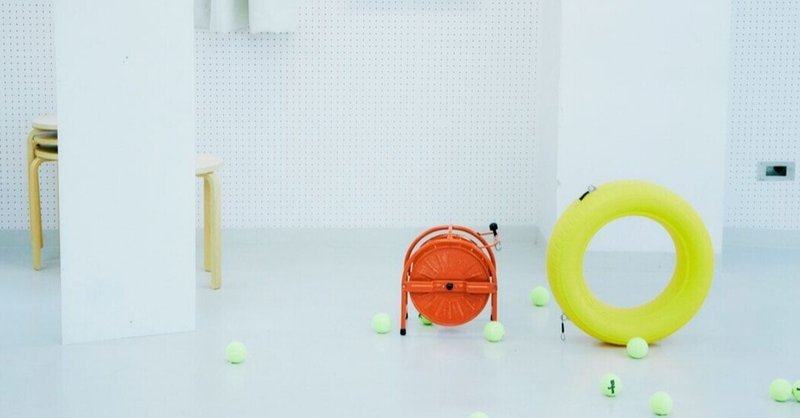
能とチェルフィッチュ The Most Natural Resistance against Rationality and Efficiency
能が好きな人は絶対にチェルフィッチュの演劇が好きはずではないと思いますが、私にとってチェルフィッチュの観劇体験は能殿は全く同じです。下記は両方の共通点を書いてみた。
If the function of performance/acting/theater is to allow human who are so deficient in imagination to observe themselves from non-human perspective, I think both チェルフィッチュ and noh are on the right track.
To outlive the modern society, what we need is not capital, information or technology. All we need is imagination.
現代社会でうまく生きるための大事な物は、多分、お金や情報や技術などではなくて、想像力である。
# 時間経過
Eraser Mountain poses the important questions of time and contemplative boredom. Similar to noh, time flows in a speed much slower than the normal life (時間の経過をゆっくり感じさせる) . Moreover, the state of being out-of-synchronization dominates the whole stage from the reposition of props, body movement to the narrations.
The warped time are stretched to an extent goes beyond what human can hold their attention to. Therefore, the audience starts napping, half-sleep and half-awake. This lures attention to easily disperse and fill in the whole theatrical space rather than concentrating on a few flamboyant actors under the spotlight. (能みたいな夢中の状態。しかし、能似たいな自然の中にではなくて、プラスチックの物を構築された現代社会の中)
# 労働時間しか時間を分からない人間
The play itself, either Eraser Mountain or noh, serves as a social critics of the modern world in which human cannot imagine time at a scale different from the uniform quantitative time measurement. It is not that human do not understand time, but just that human cannot imagine or feel time in a way that different from what they have used to.
As stated in the play, people do not really know what it means by saying that time exists. Human beings are humans because they have time. But never understand time truly, except by the artificial calculation of clock, which becomes the ultimate measurement of life under the capitalist hour-based labor society. (as explained by Heidegger, a philosophical and contemplative boredom as the ultimate meaning of human life rather than a practical boredom such as why i have to wait at the train station rather than making money)
Due to this humane fallibility of being unable to experience time in alternative ways other than the straight-line measurable one, non-humans are posed in a superior positions than human beings (such as the future immigrant and objects in Eraser Mountain and the ghost who always acts as the シテ in noh).
# Non-human Centralist Expression 非人間中心
Recently, I have been obsessed (or concerned) with how to change the quality of my voice to perform different characters in Noh, an art of non-expression. The difficulty is that how I can make my voices FEELS like a woman and a monk without changing my own voice. Moreover, the most difficult one is the feeling of 地謡, which similar to 囃子, is a non-human role that provides non-human elements for the stage.
Make a vocal expression while eliminating the expressive subject self.
Eraser Mountain is full of such 殻 っぽ sounds. Because I practice know, I understand how much attention and practices are required for this.
Moreover, as both in Eraser and Noh, the actors express from different perspectives, especially those of non-living beings such as the moon and water in noh, and the wash machine in Eraser.
# 変である、そのままである
Firstly, it can be felt in the body movement. Both noh and Eraser presents wired and natural movement. Being wired because the movement is against the everyday life of human or against the mainstream idealistic images such as a supermodel or ballet dancers. In both cases, the body is never stretched straight while tensions are imposed on areas unexpected such as the unrelenting wrist movement in Eraser and the unobservable waist twist in noh.
However, the sense of strangeness in both cases are neutralized by unconscious repetition. However, in noh, the repetition is embodied in 型 which is crystalized through its 700-hundred years of history, whereas in Eraser actors on the stage possess their own 型 (you can feel that their random movement follows some precise and sophisticated rules 勝手好きに動いているわけではない) and the individualist 型 gains its authority and feels habitual by continuous unconscious repetition. Moreover, what is important in those movement is their non-expressiveness and non-purposefulness. If you do not move the body in a status of 無, even if you copy the exactly same movement, it will feel いなか臭い (according to my noh teacher when seeing my movement). In the case of Eraser, if actors are not able to grasp the status of 無 while making those wired movement, they probably would not being able to create the sense of naturalness and futurist and nostalgic 馴染み.
Secondly, the stage props. If what is most natural to noh is the tree branch and 和紙, the equivalent to a normal modern human being would be plastic pipes, plastic sheet and synthesized wood sticks.
# pro-marginalized groups
allow them to speak as the main character. (future immigrant, losss, social outsiders in Eraser, and ghosts in noh 山姥)
# わざわざずれている音と動きの表現
# 人は舞台を支配することではなくて、舞台を人を支配する
シテhave to move according to the predetermined position (大小前etc.) and 雪道 (all the 運び has its own 軌道). Eraser uses tennis balls, sticks etc. to divide the stage, and all the movements are restrained by that overcrowded stage.
# long-non-stopping narration
Narration is not divided by period but by a block of meaning, sentences are chained together and the 気 will not 落ちる until you reach the end of what you want to express. 能の謡の稽古も、場面や話して変わる前に、ずっと同じの気をもってうたわなければならない。While listening to this kind of sound, you can draw a non-stopping line that forms a shape.
# repetition of the same words even though the words do not make much sense.
この記事が気に入ったらサポートをしてみませんか?
